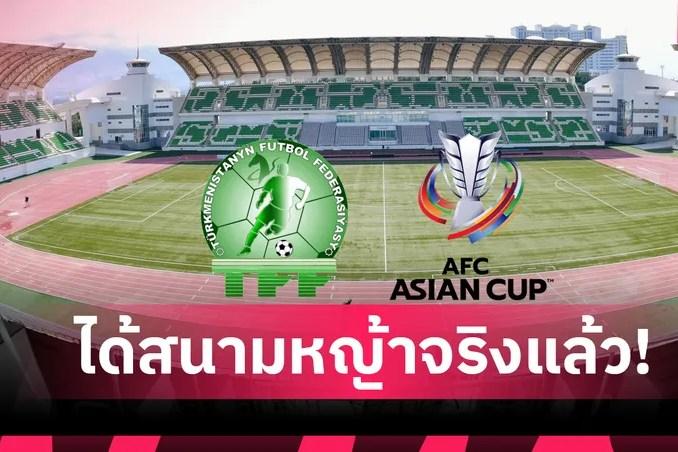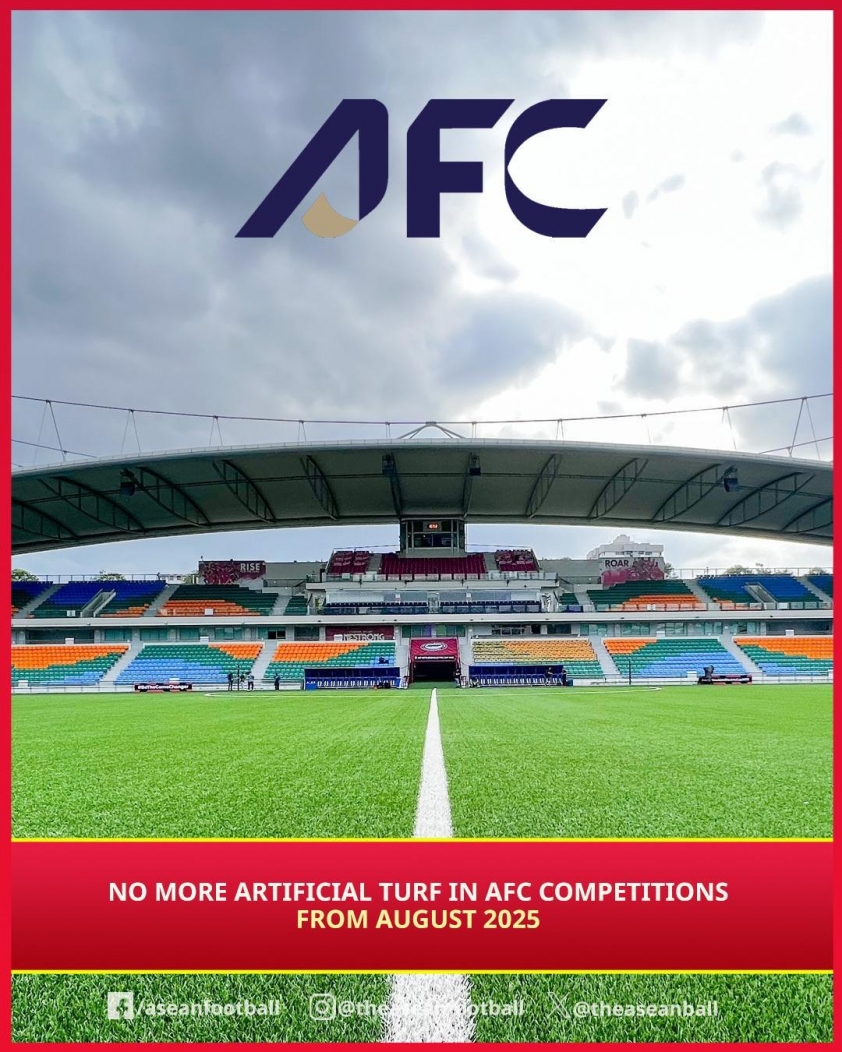One Asian team must change their home venue due to AFC's ban
The Turkmenistan team was required to use natural grass for the 2027 Asian Cup qualifying matches following AFC's ban on artificial turf.
Turkmenistan, currently leading Group D in the 2027 Asian Cup qualifiers ahead of Thailand, confirmed they will move to the "Argadag" stadium, which features natural grass and a 10,000-seat capacity, after AFC introduced a rule banning artificial turf in major tournaments.
In the third round of the 2027 Asian Cup qualifiers, Group D includes Turkmenistan, Thailand, Sri Lanka, and Taiwan. Recently, Turkmenistan, who secured full 6 points from the first two matches (including a win over Thailand), announced an official change of their home stadium.

Previously, Turkmenistan had been usingthe Asgabat stadium which has 20,000 seats and an artificial turf for home matches, such as their 3-1 victory over Thailand. However, afterthe Asian Football Confederation (AFC)issued a ban on artificial turf in continental championships, finding a new stadium that meets the standards became necessary.
Thailand lost 1-3 to Turkmenistan when they played away in June 2025. This defeat puts the "War Elephants" at high risk of missing the 2027 Asian Cup finals. After the loss, Thailand’s head coach complained about playing on artificial turf, which negatively affected the team's performance.

The ban on artificial turf was introduced as AFC aims to improve pitch quality, ensure consistency in playing style, and promote player development to meet world-class standards, paving the way for exclusive use of natural and hybrid grass surfaces that are more durable and provide a more authentic playing experience.
The artificial turf ban applies to the following competitions:Final round of AFC Asian Cup qualifiers, AFC Women's Asian Cup qualifiers, FIFA World Cup qualifiers (from second round onward), Women's Olympic qualifiers, AFC Champions League Elite, AFC Champions League Two, and AFC Women's Champions League.










 Links
Links
 Contact
Contact
 App
App


